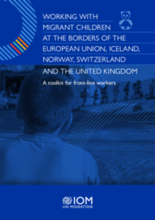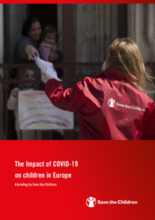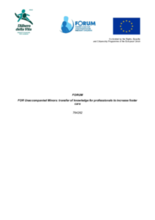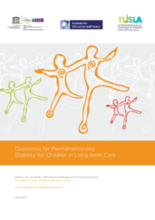Displaying 1 - 10 of 17
This Toolkit builds on the outcomes of an international thematic workshop on addressing the needs of migrant children at borders, consolidated with IOM best practices and additional research inputs.
This contribution is a collective re-analysis of three research projects in Iceland focused on parenting with a disability which draws upon data spanning a twenty-year period. The core purpose of these projects is to understand why parents with primarily intellectual disabilities encounter such difficulties with the child protection system.
This paper is divided into two parts: The first details the evidence from the ground, painting the picture of life for children during the pandemic in different European countries with statistics and examples, and giving a set of recommendations on measures that national governments across Europe can take to help protect children from the worst impacts of the crisis relating to the economic impacts on families, loss of services, access to education and targeted measures for children in migration. The second part focuses on recommendations to the EU institutions on how EU policy and funding can support and complement these national-level actions in these challenging times.
Join this webinar to walk through the PROMISE Child Participation Tool and to discuss approaches and considerations for soliciting children’s views on their Barnahus experience.
The purpose of this webinar is to shed light on the specific experiences and issues of unaccompanied and separate girls in the European Response.
Building on discourse analyses of custody deprivation cases, the authors of this paper call for greater understanding of how disability intersects with parenting and the need for an improved support system.
This article is written as part of the FORUM project (FOR Unaccompanied Minors: transfer of knowledge for professionals to increase foster care), an EU funded project which sought to enhance the capacity of professionals to provide quality foster care for unaccompanied migrant children, primarily through the transfer of knowledge. The article aims to contribute to this transfer of knowledge by bringing together literature which is of relevance to professionals developing or enhancing foster care services for unaccompanied migrant children.
The goal of this contribution is to bring to light some systemic applications of organizational power that occur within the child protection system in Iceland.
Freyja Haraldsdóttir, former substitute MP for Bright Future, has filed a case against Iceland's Government Agency for Child Protection (Barnaverndarstofa or BVS) in response to their denial of her application to become a foster parent.
The aim of this study was to explore how young people who have been in care, and their carers, conceptualise permanence and stability.





